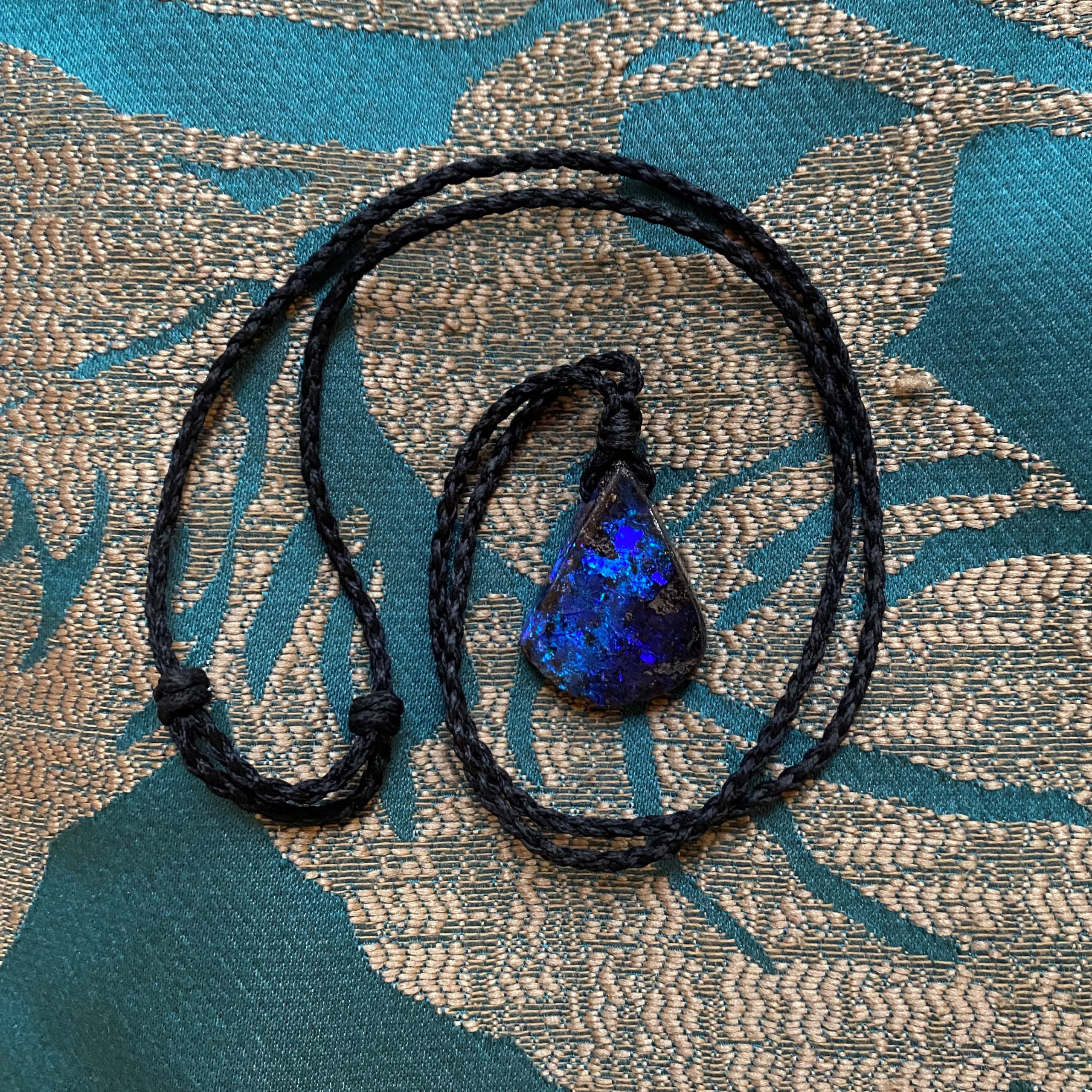CULTIVATING ARTS AND MINDS
The Poetic Line
The Poetic Line
Experiment
In this creative experiment, we were asked to identify an object that gives us aesthetic pleasure and write a detailed evocation of it using purely sensory imagery, as though we were describing it to a person who cannot see or touch it. Next, we crafted our words into a short, evocative poem, which we titled "I am an Artist✼Academic." The Poetic Line invites us to address powerful existential questions via poetic language and metaphor. It teaches us to watch for ideas and images that glimmer, like Poet A's lapis lazuli necklace, in the blue depths of our unconscious, at the glittering edge of the unknown.
Exhibit
Poet A
Object: an opal necklace
It’s deep deep blue – no, it’s sparkling blue, shimmering blue, deep deep inside. It’s a symphony, a riot, an exuberant metaphorical mélange of surface and depth. Mined from the depths of the earth, it was cut and crafted into an asymmetrical pendant by the husband-and-wife team who sold it to me at a Sunday market in Brisbane. He dug, she shaped. A hole drilled through the apex of its teardrop shape receives the black cord that anchors it around my neck. It’s smooth and glossy and hard, a worrystone for my caressing fingers. On the back side that I seldom turn to look at, I find dark granite grey with a splash of silver.
Six evocative words or phrases
- exuberant metaphorical mélange
- crafted
- he dug, she shaped
- teardrop
- worrystone
- splash
Poem
I am an Artist✼Academic
An exuberant metaphorical mélange
of (he)art and mind
I dig deep and polish myself
into a teardrop-shaped pendant,
a worrystone slung round my neck,
a liberty bell to ring me free.
Splash!
The asterisk bursts like a star.

Invitation
The Poetic Line
- (2 minutes) Walk around the room and find an object that gives you aesthetic pleasure, then tell another person what object you chose and why. (Note: No electronic objects allowed!)
- (5 minutes) Write a detailed description of your object. Imagine that you are describing it for someone who cannot see or feel it themselves.
- (5-10 minutes, in a small group or pairs) Read your description aloud, then choose 6 evocative words or phrases that jump out at you as you read (or ask others to choose their favourite 6 words for you). Write them down on a fresh page in your notebook, one word or phrase per line.
- (5 minutes) Write a short poem about your object, adhering to the following parameters:
-
- 5 minutes to write
- 6 lines of poetry
- 7 words per line maximum
- Give your poem a title that reflects the question or provocation you are exploring (e.g.“I am an Artist✼Academic”).
- (5 minutes) Reread, revise, and reshape your poem in response to your new title. Feel free to loosen up on the “6 lines/7 words” restriction if your words need more room to breathe.
- Share your poem with others and reflect on what it can teach you. Does your poem tell you anything that you didn’t know you know?
